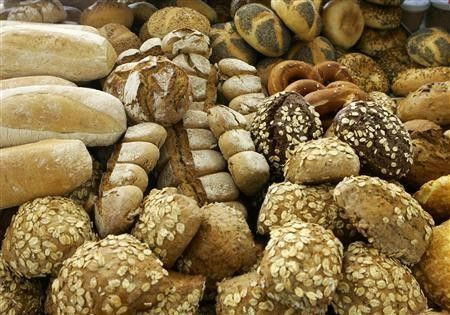The World's Best Diet -- And Why It Says To Keep The Carbs

Scientists have tested and discovered what they dubbed as "the world's best diet," which consists of high protein and low carbohydrate foods.
Experts tested five popular diets on 773 adults in a study conducted at the University of Copenhagen. The results showed that protein and low glycemic index carbohydrates were ideal in keeping individuals feeling full by producing more hormones that trigger feelings of satiety.
The study was called "Diogenes," which compared five types of diet plans. The first was high-protein with low glycemic index carbs, the second was low-protein with high glycemic index carbs, the third was low-protein with low glycemic carbs, the fourth was high-protein with high glycemic carbs and the fifth was a control group.
The scientists concluded that the high-protein with low-GI carbs produced the best results in terms of weight loss. The participants who tried the high-protein and low-carb diet effectively kept the weight off during the duration of the study, which lasted six months. They further lost weight even after the experiment.
According to Jennie Brand-Miller, Professor of Human Nutrition at the Charles Perkins Centre at the University of Sydney, the approach involves gradually reducing the carbohydrate content and to gradually increase the protein content of the diet, thereby providing a ratio of 2:1 in favor of protein.
Brand-Miller added that in the past decades, too much emphasis was placed on the satiating effect of carbohydrates that people did not realize the advantageous effects of protein in keeping people feeling full. Australians did not appreciate protein much, since it was widely available. The typical Australian diet has a 4:1 ratio in favor of carbohydrates.
There were also a few studies that gave protein or meat a bad reputation, indicating that people increased their risk of developing heart disease, cancer and other long-term illnesses if protein is consumed in high amounts. Based on the Danish study, however, participants were found to be healthier and their risk for developing heart disease and other serious illnesses were decreased. Another study published in the Journal of Obesity showed the safety and benefits of eating protein. The scientists in the study concluded that eating two eggs for breakfast five days a week helped dieters lose 65 percent more weight compared to those who ate a bagel.
The idea is to choose the carbohydrate source carefully. Low-glycemic index carbohydrates are recommended because these do not cause blood sugar levels to spike or crash, and they also go deeper into the gut. As a result, compared to refined carbohydrates, this keeps people feeling full for a longer period of time,




















